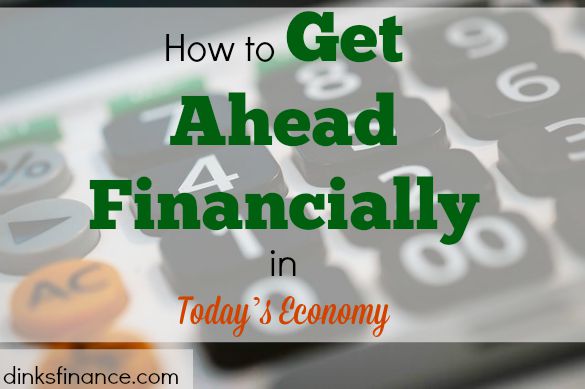
(Guest Post by Benjamin Feldman)
Let’s face it: the economy is a fickle beast. It cares not for your feelings or your financial needs. And as we’ve all seen quite clearly in the last few years, abrupt economic changes can leave many people struggling to save their finances.
So how do you become one of the people who is ready for the twists and turns that we need to expect in today’s economy? Well, if you’re a frequent reader here, then you’re well on your way to achieving that kind of financial security. But you can always use more insight. And as someone who has spent the last few years of my life trying to get my career and financial life on track, I’ve learned some important lessons for young couples (or anyone, really).
Here are some of the most valuable lessons I’ve learned – in some cases, the hard way – and how you can apply them to your own life in order to boost your financial standing.
Don’t be afraid to change jobs… or careers
In today’s economy, it’s okay to change jobs. In fact, in some cases, it’s necessary. And it’s also okay to change careers! Especially if you feel like your current job isn’t the place where you can meet your full potential as an earner and as a worker, you’ve got to understand that (A) you’re not alone and (B) you should be proactive and search out that next step immediately.
This can be tricky. A few years ago, I had a job that was solid, but it wasn’t a job that I wanted to do forever. I was ready to find a new job. But when I thought about actually doing that, it felt scary. I imagined that it would be too difficult to find something new and that prevented me from taking any action.
However, once I actually did it, things worked out great and I found a new job that was a much better fit. In my own experience, the seemingly simple task of coming to grips with leaving your current job is the hardest part.
So get started by making a plan for how to find and get your new dream job. This can be as vague as you need it to be at first. Brainstorm the types of things you like to do and the kinds of working environments that have made you happy in the past. Talk to people in similar positions and learn about new careers from people who are already in those fields. And then go out and start applying for new jobs. You may not get one on the first try, but you’ll probably get one sooner than you’d expect.
Add income from freelancing if you need it
If you already have a job you’re happy with and you don’t want to leave, that’s great! Of course, that doesn’t mean you have to stay at your current income level. In today’s economy, you can make money on the side – no matter what your skills or expertise may be.
For example, I did some research on how I could turn my own skills into freelance income, and I realized there are things (like writing, word processing, transcribing, etc.) that people are willing to pay for on sites like Elance.com and many others.
You will be surprised at the wide range of freelance jobs that are available, and if you want to make extra money working from home this is the best way by far.
Tackle your debt immediately
The one thing you can’t afford in this economy is to have debt – particularly credit card debt. After my career change, I had several thousand dollars of credit card debt that I knew I had to pay off (and did pay off earlier this year). If you find yourself in a similar situation where you’ve accumulated consumer debt, start taking action now to pay it off.
Use the tips above and elsewhere on this site to begin gradually increasing your monthly income – so you can allocate more money toward paying off your debt each month. And get serious about sticking to a monthly budget. If your money personality is more spendthrift than frugal, then you will need to examine your behaviors and make changes to ensure you can meet your budget each month.
You can also research some specific actions that might help you better manage your debt. For example, you can use our resource centers, such as the ones focused on Student Loan Debt and Debt Consolidation to find articles that may be helpful to you and learn more about how to tackle each type of debt.
Hopefully these tips will help your finances soar no matter what this new economy brings your way! Let us know in the comments if you have any questions we can answer.
——–
Benjamin Feldman is a personal finance expert at ReadyForZero, a visually-compelling web app that helps people pay off debt by giving them a plan and motivating them with information – like how much interest they’re paying per day. Follow him at @BWFeldman and read more of his work at the ReadyForZero blog.
Photo by snap



No Comments yet!